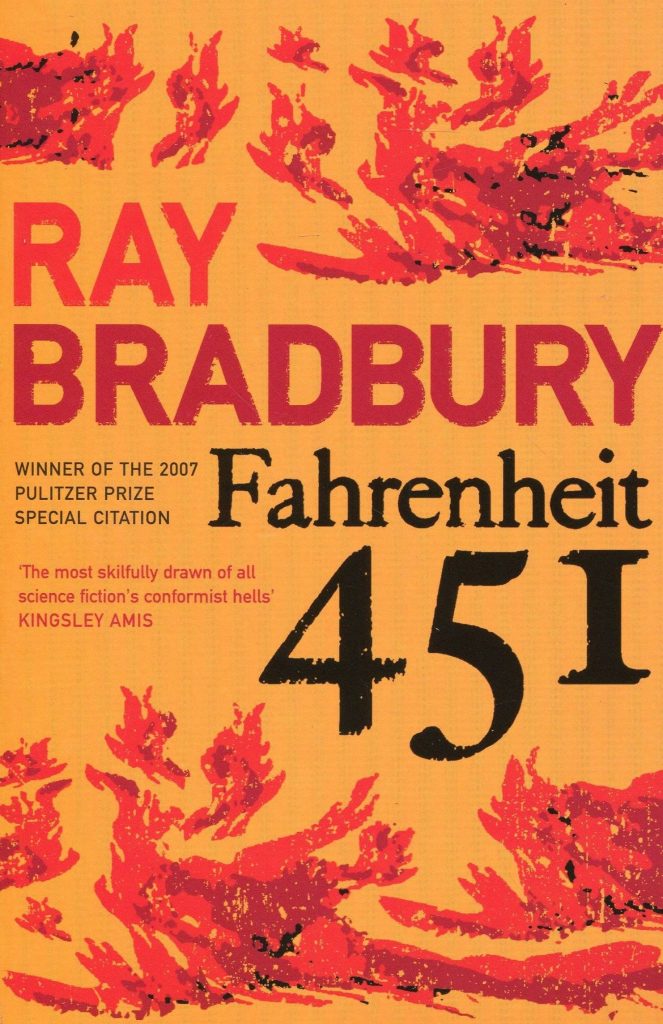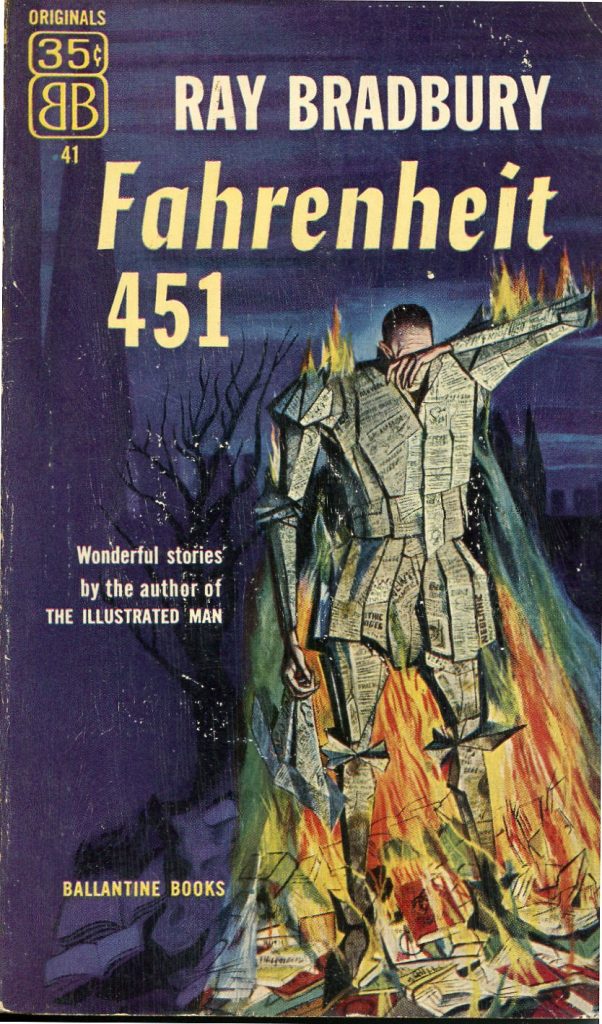Fahrenheit 451 is a 1953 American novel by Ray Bradbury, set in a future dystopia where books are banned, TV screens are the size of whole walls, and Firemen set fires instead of putting them out. The protagonist is a Fireman named Guy Montag, a begins to question why books were banned in the first place. After befriending a kind but unusual neighbor named Clarisse and encountering an old woman who would rather burn with her books than live without them, Montag realizes that he might have been on the wrong side this whole time. The novel is adapted from a short story Bradbury wrote in 1951 called The Fireman. It was been adapted into a 1966 film directed by François Truffaut, and more recently into an 2018 HBO-produced film starring Michael B. Jordan.
The biggest themes present in the novel are technology, dissatisfaction, and knowledge vs ignorance. Fahrenheit 451 shows how even though technology can be beneficial for society, it can also be destructive. For example, vehicles called “beetles” can reach speeds up to more than 100 miles per hour but are often used for reckless driving and hit-and-runs. And instead of going out and socializing, people stay indoors watching television, interacting with the characters in the programs instead of each other. This causes a strong sense of dissatisfaction in people, who seek dangerous, chaotic ways of satisfying themselves, such as by driving fast and destroying things. The novel also tackles the theme of knowledge vs ignorance. Books are a primary source of knowledge both within the world of the book (as they are in real life). By burning books as a part of their job duties, Firemen promote ignorance. The available television and radio programs promote ignorance about the world outside the United States, creating a bubble for the unaware.
Ironic as it may seem given the role that book burning plays in the novel itself, Fahrenheit 451 has faced multiple censorship and banning attempts throughout the years, primarily for vulgarity and discussions about drugs. In 1967, and edition known as the “Bal-Hi edition” censored swear words and changed “drunk man” to sick man. In a similar instance in 1992, obscenities were once again censored by the school system. A more recent attempted happened in 2006 where the novel was challenged in Texas for going against religious beliefs (because a Bible was banned and burned) in addition to the common criticism that the novel contains “dirty talk”. Despite the efforts by parents and schools to ban or at least censor the book, any censorship made did not last long due to complaints by teachers or other parents.
About the Author
Ray Bradbury was born August 22, 1920 in Waukegan, Illinois. When he was 14, Bradbury’s family moved to Los Angeles, California. Bradbury was an avid reader and writer growing up and often spent his time reading horror, science fiction, and comic books. He published his first short story in a fan magazine at the age of 18. Bradbury’s first collection of short stories, Dark Carnival, was published in 1947 and in 1949, his first novel, The Martian Chronicles, was released. Other works of Bradbury include The Veldt, The Pedestrian, The Halloween Tree, There Will Come Soft Rains, and I Sing the Body Electric. Bradbury won a multitude of awards for his works such as the Bram Stroker Award, the Geffen Awards, and the Retro Hugo award as well as being induced into various halls of fame.
In 1947, Bradbury married his wife Maggie and they had four daughters and eight grandchildren. On June 5, 2012, Ray Bradbury died in Los Angeles at the age of 91.





